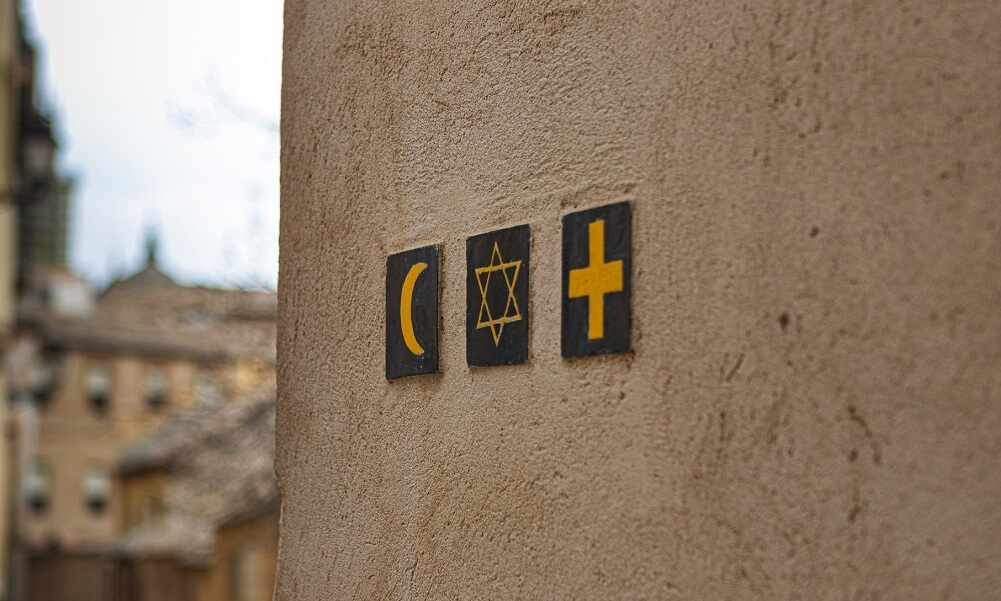
Is “Interfaith Dialogue” Syncretism?
Interfaith is a social concept that aims to create harmony and inspire cooperation across different religions. Its chief goal is transforming religious communities united by harmonious relations and the common good. Syncretism is the assimilation of different religions or religionists into a fused whole or a synthetic cause devoid of mutual theological rancour.
The two concepts are united in the pursuit and utilization of contact, dialogue, and engagement. Although the former priorities the entrenchment of multi-religious harmony, the latter goes deeper into cultivating shared spirituality. Whichever one works best for a community is a holy game for their vested interests.
Today, however, there’s a huge dichotomous reality between theory and practice of interfaith relations across different cultures or spiritual polities. Take the Nigerian Yoruba people who apparently have a seamless homegrown interfaith culture right from the family level.
It’s variously agreed that such socio-religious hegemon was responsible for the eventual rise of the hybrid religion called “Chrislam”, a bi-syncretic of Christianity and Islam, which stormed the Nigerian nation in the 1980s. Yoruba Muslims are also credited with the invention of “Assalatu”, the weekly Sunday Islamic service fashioned after Sunday church service, complete with rituals of praise, dance, and choir performances. Yoruba Christian clergy have also allegedly embraced the way of the Muslim marabout, courtesy of close interfaith relations with Muslim mystics.
The general call and practice of religious synthesis is a global phenomenon, which enjoys growing support over the decades. Especially with the rise of the menace of religious intolerance and mass religious-inspired violence. While interfaith missions and organizations continuously remain a force for good, what many promoters of interfaith cooperation seem to confuse is the elimination of difference or dissent as both necessary and sufficient for the prevention of conflicts. Nay, it’s a millennium-old philosophical truth that conflict is part of human life, and it’s never inherently bad. What is squarely avoidable in a peace-loving community is violent conflict.
Another hardwired criticism of interfaith culture is the subverting politics of proselytization by another means or a hidden agenda towards such political gains by one religion over the others. In Nigeria, none of the two major Abrahamic religions is innocent of that missionary desire or attempt to achieve hegemony and undue advantage, that’ll result in winning converts.
For instance, a popular and highly successful Christian missionary project in northern Nigeria, known as “Bazata” allegedly aimed at proselytizing the Muslim populace, is suspected by Muslim leaders to be the ultimate agenda of Christian-led interfaith engagements in the region. Similarly, the initiative of “comparative religions” loved by Muslim interfaith preachers is rightly suspected as an avenue to attract Christian proselytes to Islam.
In the leftist liberal United States today, some interfaith organizations have gone beyond the fusion of religious calls, into a full-fledged pro LGBT propaganda machine. Before you wonder what brought gender and sexuality into a faith affair, know that interfaith cultures around the world had since been eroded by an unrealistic sentimental project towards unified spirituality, to the detriment of any manifestation of distinct diversity in religiosity.
Many interfaith fora only promote dialogue around topics that unite and highlight well-known or cosmetically invented similarities. Interfaith goers indulge in a spiritual rapport that zealously eschews any shade of difference and open disagreement. They fervently sustain a platform for the regular display of professed affectionate togetherness, comforting oneness, and extinguished sense of diversity amongst faith actors. Such engagements strive to remove any spike of dissent, promoting an embellishment of weekly pretended cordial dates built on illusory love. Experts on conflict resolution will tell you that a true dialogue platform should encourage sincere truth-filled deliberations, not self-deceitful mutual funfair.
Good interfaith dialogue framework remains a veritable element of the policy of peacebuilding, violence prevention, and nation-building. Positive results have come out from many local and international initiatives. They are a good catalyst to conciliation and peacemaking projects. But the moment such engagement became established, what should naturally be next on the agenda is truth-telling and dialogue around a thorny social issue, and doctrinal differences, whose honest understanding will foster mutual respect and safe accommodation of individual sensitivities.
This led us to “Multi-faith” as a better term for honest interreligious dialogue and pluralistic cooperation. Better still, we have the universally relevant concept of “Religious freedom”, which seeks to establish shared liberty and religious harmony by preventing inequality, persecution, and religious violence. Religious freedom comes as a true manifestation of the universally found golden rule of “do unto others what you wish for yourself”. It encourages accepting the God-given right of humans to follow their conscience without duress or hindrance! Here, it’s not about choosing between “conflict and compromise” as a precondition for living together.
All parties voluntarily agree to accept the natural order of people’s intellect-based freewill and the right to be wrong and bear the consequence. Religious freedom as a social avenue for reconciliation and peacebuilding bears a more realistic prospect for achieving unity in diversity, far more than the feel-good mirage of interfaith culture.
PS: lest I appear to be against interfaith culture, I currently chair a state-level interfaith committee for advancing religious tolerance in Kano state, under a project by SFCG.
